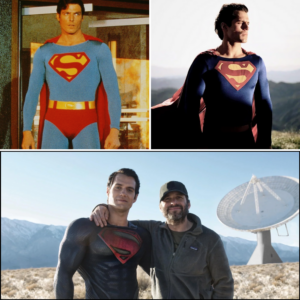Elon Musk, the billionaire pioneer behind Tesla, SpaceX, and X, is renowned for his audacious goals and transformative impact on industries ranging from electric vehicles to space exploration. Yet, among the many influences shaping his career, one figure stands out: Steve Jobs, the late co-founder of Apple, whose revolutionary approach to technology and design left an indelible mark on the world. Musk has frequently expressed admiration for Jobs, citing his focus on product excellence, relentless pursuit of vision, and ability to reshape entire industries. This article explores Musk’s reverence for Jobs, their shared traits as visionary entrepreneurs, and how their legacies continue to inspire the tech world, drawing on insights from web sources and public sentiment.
Musk’s Public Admiration for Jobs
Elon Musk’s respect for Steve Jobs has been well-documented, particularly through his comments on X and in interviews. In a May 2025 post on X, Musk highlighted Jobs’ “ultra product-focused” approach, emphasizing his attention to detail at both macro and micro levels, which created “delightful” user experiences. Musk shared a 1995 video of Jobs discussing the importance of collaboration and refinement in innovation, comparing teamwork to polishing stones to achieve remarkable results. Musk commented that he “precisely agrees” with Jobs’ philosophy, underscoring the value of passionate teams in transforming ideas into reality.
This admiration is not new. In a 2013 interview with Business Insider, Musk described Jobs as “way cooler” than himself, acknowledging the Apple co-founder’s knack for creating products that were both functional and aesthetically captivating. Musk’s appreciation stems from Jobs’ ability to prioritize user experience, a principle evident in iconic products like the iPhone and iPad, which redefined consumer electronics. Musk’s own ventures, such as Tesla’s sleek electric vehicles and SpaceX’s reusable rockets, reflect a similar commitment to blending form and function, suggesting Jobs’ influence on his approach to innovation.
Shared Traits: Visionaries Who Bend Reality
Musk and Jobs share striking similarities, as noted by biographer Walter Isaacson, who authored books on both entrepreneurs. Isaacson, who spent years shadowing Musk and interviewed Jobs over 40 times, described Musk as “in some ways the Steve Jobs of our time,” pointing to their shared intensity, perfectionism, and ability to push teams beyond perceived limits. Both men are known for their “reality distortion field,” a term coined for Jobs’ ability to convince others to achieve the seemingly impossible. Musk, too, employs this tactic, driving his teams at Tesla and SpaceX to meet ambitious deadlines, such as launching the Falcon 9 or producing the Tesla Model S.
Both entrepreneurs started young—Jobs co-founded Apple at 21, while Musk created his first video game, Blastar, at 12 and sold Zip2 for $307 million by age 28. Their early successes fueled their confidence to tackle audacious goals. Jobs revolutionized personal computing with the Macintosh, music with the iPod, and mobile phones with the iPhone. Similarly, Musk disrupted transportation with Tesla, space travel with SpaceX, and online payments with PayPal. Their ability to identify future trends and create market-defining products has cemented their status as tech titans.
However, their leadership styles diverge. Jobs was a master of design and marketing, relying on technical experts like Steve Wozniak to build Apple’s products. Musk, by contrast, is a hands-on engineer, often diving into the technical details of rocket propulsion or battery chemistry. Bill Gates, in a 2020 interview, noted that while Jobs was a “genius at design and picking people,” Musk’s strength lies in his engineering prowess. Despite these differences, both shared a relentless work ethic and a willingness to challenge norms, inspiring a generation of entrepreneurs.
Jobs’ Influence on Musk’s Approach
Musk’s admiration for Jobs is evident in his focus on product excellence. Jobs’ philosophy, as articulated in his 2005 Stanford commencement address, emphasized doing “great work” by loving what you do. Musk echoes this sentiment, often stating that his companies aim to solve existential challenges, like climate change through Tesla or human survival through SpaceX’s Mars mission. Jobs’ obsession with intuitive design and user experience is mirrored in Tesla’s minimalist interiors and touchscreen interfaces, which prioritize simplicity and elegance.
Musk’s attention to detail also reflects Jobs’ influence. In a 2024 Times of India article, Musk praised Jobs’ refinement process, noting how Apple’s products were polished through relentless iteration. Tesla’s iterative approach to software updates and vehicle design, such as the Cybertruck’s bold aesthetic, parallels Jobs’ insistence on perfecting every aspect of a product. Musk’s Neuralink and xAI ventures, including the Grok AI, further showcase his drive to create transformative technologies, much like Jobs’ vision for the iPhone as a convergence of phone, music player, and internet device.
Their shared commitment to “thinking different” is another point of convergence. Jobs’ 1997 Apple campaign encouraged innovation by celebrating those who “push the human race forward.” Musk’s mission to make humanity multi-planetary aligns with this ethos, as seen in SpaceX’s 100th successful payload delivery by 2024. Both men justified their demanding leadership styles—often criticized as harsh—with the need to achieve world-changing goals. Isaacson notes that Jobs’ pursuit of beauty and Musk’s ambition to colonize Mars drove their sometimes ruthless management, a trait that sparked both admiration and controversy.
A Brief Encounter and Lasting Respect
Musk’s admiration for Jobs was further highlighted by a personal encounter before Jobs’ death in 2011. In a 2023 Medium article, Musk recounted meeting Jobs at a party, though details of their conversation remain sparse. The brief interaction left an impression, reinforcing Musk’s respect for Jobs’ vision. While Jobs was famously private, his public talks and Apple’s product launches provided Musk with ample insight into his philosophy, which Musk has cited as a guiding force.
Musk’s ventures reflect Jobs’ legacy in subtle ways. For instance, Tesla’s direct-to-consumer sales model, bypassing traditional dealerships, mirrors Apple’s control over its retail experience through Apple Stores. Both approaches prioritize brand consistency and customer engagement. Similarly, Musk’s use of X to communicate directly with users echoes Jobs’ carefully orchestrated product launches, though Musk’s unfiltered style contrasts with Jobs’ polished presentations.
Contrasts and Criticisms
Despite their similarities, Musk and Jobs differ in scope and execution. Jobs focused on consumer electronics, creating products that were “insanely great” within a single industry. Musk’s ambitions span multiple sectors—transportation, space, energy, and AI—making his impact broader but also more diffuse. Jobs was meticulous about deadlines, rehearsing presentations months in advance, while Musk is known for missing timelines and improvising in public appearances.
Critics also highlight differences in their personal lives. Jobs, later in life, prioritized family and softened his abrasive style, while Musk’s relentless pace and public controversies, such as his 2018 SEC settlement over Tesla tweets, reflect a more chaotic persona. Musk’s outspokenness on X, including his 2022 “Prosecute/Fauci” tweet, has polarized audiences, unlike Jobs, who maintained a curated image. Yet, Musk’s willingness to embrace failure, as seen in SpaceX’s early rocket explosions, aligns with Jobs’ resilience after being ousted from Apple in 1985.
Public sentiment on X reflects this nuanced comparison. A 2025 post by @KjetilLybe65106 likened Musk to Jobs, suggesting he is “for Tesla what Steve Jobs was for Apple,” while @johnmarkarian1 imagined a Musk-Jobs partnership as a “great team.” However, some users, like those on Quora, argue Jobs’ innovations in personal computing and smartphones surpass Musk’s contributions, calling Musk a “poser” who benefits from others’ engineering.
The Broader Impact
Musk’s admiration for Jobs underscores a shared belief in technology’s power to transform lives. Jobs’ legacy, from the Macintosh to the iPhone, reshaped how we interact with devices, setting a standard for design and usability. Musk’s work with Tesla and SpaceX extends this legacy to new frontiers, addressing climate change and humanity’s cosmic future. Both men have inspired entrepreneurs to think boldly, as noted in a 2024 LinkedIn article comparing their influence on tech aspirants.
Their legacies also raise questions about leadership and ethics. Jobs’ and Musk’s demanding styles, while effective, have been criticized for creating high-stress environments. Musk’s reported “mental breakdown” after being booed at a 2022 Dave Chappelle show highlights the personal toll of such intensity, a trait Isaacson also observed in Jobs. Yet, their ability to inspire loyalty and achieve breakthroughs—Apple’s $3 trillion valuation and SpaceX’s reusable rockets—demonstrates the impact of their vision.
Conclusion
Elon Musk’s admiration for Steve Jobs reflects a deep respect for a fellow visionary who redefined technology through design and innovation. Their shared traits—perfectionism, reality distortion, and a passion for transformative products—have shaped industries and inspired millions. While Jobs focused on crafting beautiful, user-centric devices, Musk’s broader ambitions aim to secure humanity’s future. Musk’s public praise, from X posts to interviews, reveals how Jobs’ philosophy continues to guide his approach, even as their differences highlight their unique contributions. As Musk pushes forward with Tesla, SpaceX, and xAI, his reverence for Jobs serves as a reminder that great innovation often stems from a relentless pursuit of what’s possible, a legacy both men have etched into the fabric of modern technology.





